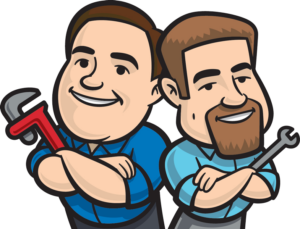 When you are looking for a new central air conditioner, choosing the right installer is the most important decision; they will help you choose the right equipment for your home. If, however, you’d like a say in which system gets installed, you will want to know a few HVAC terms first.
When you are looking for a new central air conditioner, choosing the right installer is the most important decision; they will help you choose the right equipment for your home. If, however, you’d like a say in which system gets installed, you will want to know a few HVAC terms first.
Although some HVAC terms may sound confusing, they’re actually meant to make understanding and buying equipment easier. Most importantly, you will understand your system better and be able to make the smartest choice when it comes to energy efficiency. That means more money in your pocket.
3 HVAC Terms to Know Before Buying a New Air Conditioner
1. SEER
The seasonal energy-efficiency ratio (SEER) tells you how energy-efficient your equipment is. It tells you how many BTUs (British thermal unit) the equipment can remove for every watt of electricity consumed. The higher the SEER number or the higher BTUs per hour, the more efficient your unit and the less money you pay on your energy bill. So, it is important to pay attention to this number.
The minimum SEER rating used to be 10, but effective January 1, 2015, the minimum SEER rating has been raised to a minimum of 14 for most equipment in most regions.
2. Tonnage
Tonnage is a rating for an air conditioner and refers to your air cooling capacity. An air conditioning ton equals 12,000 Btu per hour. That means a three-ton air conditioner can remove about 36,000 Btu of heat per hour from your home. This is important to know when choosing the right-sized unit.

Source: acdirect.com
While many HVAC companies simply look at the label of your current system to replace it with a similar-sized one, or even worse choose a slightly larger unit, this is the wrong way to do it! Besides knowing the square footage of your dwelling, things such as insulation, ventilation, and renovations play a factor as well.
Before replacing any HVAC system, a Boulden Brothers technician will check your ventilation, insulation, and duct system before even thinking about which sized unit to choose for your home.
Watch Dan the Boulden Brothers Answer Man give you some tips for buying a new air conditioner:
Click here for more heating and cooling videos.
3. Programmable Thermostat
Along with other features, such as a variable-speed blower, fan-only switches, and a filter indicator light, installing a programmable thermostat to supplement your central air conditioner will help to increase its energy efficiency.
The newer “smart” programmable thermostats allow you to control the temperature of your home via smartphone. In addition to being able to control your home’s temperature remotely, programmable thermostats allow you to set the temperature back for when you are away from home. If you use a programmable thermostat wisely, you can save up to 30%.
Ever heard of Nest or the Honeywell wifi thermostats? Watch this video to learn about how a smart thermostat can change the way you heat and cool your home:
Boulden Brothers technicians are professional installers of all thermostat makes and models.
For more things to keep in mind when buying a new air conditioner, read this infographic:

Source: mchenryheating.com
It doesn’t matter how much you know when it comes to buying a new air conditioner if you hire the wrong contractor (unless you are a professional HVAC installer yourself). Before choosing an HVAC contractor, double-check their BBB status and make sure they offer upfront pricing and a 100% satisfaction guarantee. This ensures that the company is committed to customer service and will resolve all consumer problems.
If you have any further questions on how to choose a new heating or air conditioning, talk to a licensed, trained technician at Boulden Brothers. Our services are all backed by a 100% satisfaction guarantee. That means that we will return for no extra charge to make it right if we can. If we can’t we’ll refund your money.
Give us a call and we will be happy to walk you through the process of investing in a new A/C system. We are available 24/7 at (302) 368-3848 to answer any questions you might have.
Don’t forget to follow us on Facebook, Twitter, and our new Pinterest page!







 want to read testimonials, verify their certifications, make sure they’re bonded and insured, and check to see that their technicians are background checked and drug tested.
want to read testimonials, verify their certifications, make sure they’re bonded and insured, and check to see that their technicians are background checked and drug tested.
